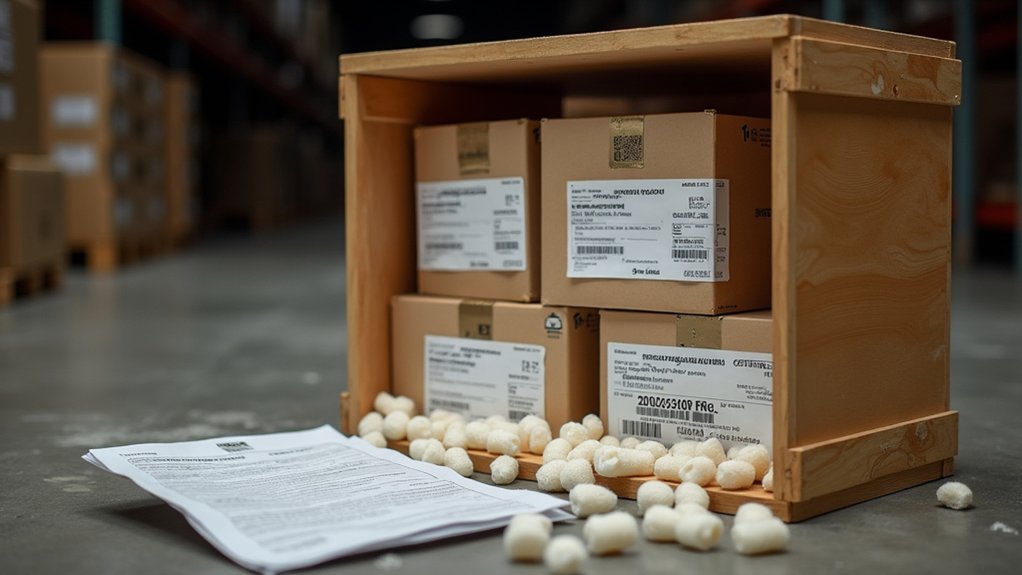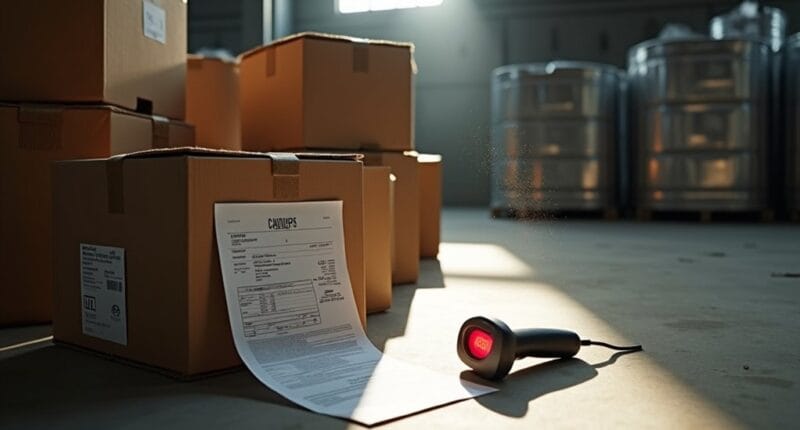Chinese suppliers are openly pitching illegal schemes to help U.S. Amazon sellers dodge hefty tariffs. Through WeChat and emails, they’re suggesting customs fraud tricks like fake invoices and under-declared values. With U.S. tariffs hitting 34% on Chinese goods, desperate sellers face a stark choice: eat the costs or risk federal charges. Some suppliers offer deceptive DDP shipping to handle the dirty work. The consequences? Let’s just say prison jumpsuits aren’t a great fashion statement.

As U.S. tariffs on Chinese goods continue to squeeze Amazon sellers’ profit margins, some Chinese suppliers are getting creative – and not exactly legal. Through WeChat messages and emails, they’re pitching American sellers on ways to dodge that pesky 34% tariff. Their solution? Good old-fashioned customs fraud.
These suppliers aren’t exactly subtle about it. They’re openly suggesting tricks like under-declaring product values and using fake invoices. Some even offer to handle the whole mess themselves through DDP shipping, which basically means they’ll do the dirty work of lying to customs. How thoughtful of them. The trade environment remains highly complex as international supply chains face mounting pressures.
Chinese suppliers casually pitch customs fraud schemes, offering to handle the dirty work of falsifying documents and dodging tariffs.
The stakes couldn’t be higher. U.S. Customs and Border Protection isn’t playing around – they’re cracking down hard on these schemes. Getting caught means more than just losing your shipment. Try federal charges, massive fines, and kiss your import license goodbye. Both the U.S. seller and their Chinese supplier could end up in hot water.
The pressure driving this risky business is real. That 34% tariff is brutal for sellers trying to stay competitive on Amazon’s cutthroat marketplace. Chinese suppliers know it, and they’re feeling the squeeze too. Some are suggesting less sketchy alternatives, like moving production to countries with lower tariffs. Others are dropping their wholesale prices to help offset the pain. The recent 145% increase in costs on most U.S. imports from China has only intensified the desperation.
The impact on Amazon’s ecosystem is messy. Sellers who play by the rules are watching competitors potentially gain an unfair edge through fraud. Supply chains are getting more complicated and less transparent. Everyone’s walking on eggshells, wondering if their next shipment will trigger a customs investigation.
It’s a classic case of desperate times breeding desperate measures. But in this game of tariff dodge-ball, the penalties for getting hit are severe. While some suppliers promise “confidential” handling of these schemes, there’s nothing confidential about a federal prosecution. The savings might look tempting, but they come wrapped in handcuffs.





